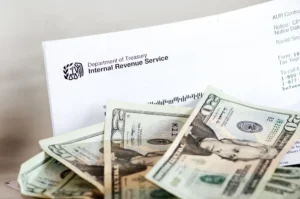The dreaded “A” word is enough to keep many business owners up at night. An audit can send a chill up your spine, but it doesn’t have to be the nightmare that you think it is.
When you know how to deal with IRS audit problems, you’ll be able to avoid penalties and get your company back on track.
S-Corps and C-Corps face audits every year for several reasons. When you understand the ins and outs of the audit process and what comes with it, you will be able to address these issues in a way that makes sense.
So what should you know about IRS audits? How can you create a game plan that makes sense?
We’ve got you covered when you’re trying to figure out what to do when IRS audits you.
Keep reading to learn more about facing an IRS tax audit in the right way so that your company comes out of it all the better.
1. Understand What an Audit Is and What Happens in the Process
An IRS tax audit involves having an agent examine your records and filings or errors or misconduct. While tax audits dropped in recent years, they’re still an issue you need to be aware of.
There are three main types of audits that you should know about. A correspondence audit happens when you get a letter in the mail detailing the issues at hand. With these audits, you never meet with an IRS agent in person.
Instead, you will be responsible for sending written correspondence back and forth. The vast majority of IRS audits take place with written correspondence.
An office audit requires you to meet with an IRS agent in person at a nearby office. In doing this, you should expect to be in the office for a few hours going through the details of your taxes.
Finally, a field audit occurs when an IRS shows up at your workplace to conduct their examination. This type of audit could take multiple days, depending on the nature of the audit and the types of facts and details they are looking for.
2. Consider the Type of Company That You Own and Operate
The nature of your IRS tax audit will also depend on the type of company that you operate. Two of the main types of companies that get audited each year include S-Corps and C-Corps.
An S-Corp is a type of company with shareholders that it passes its deductions, credits, and income through. When you run an S-Corp, the IRS agent is likely examining issues pertaining to your salary as the owner of the company.
A C-Corp is a type of business with a legal composition that separates the shareholders from the business entity so that they are taxed differently. These businesses are typically audited based on accounting issues.
Consider the type of company that you run so that you have a strong foundation when moving forward with your audit.
3. Review the Basis of the Audit and What You’re Up Against
There’s no ambiguity when you’re audited by the IRS. They have an obligation to let you know their exact reason for auditing you and will have to put it in writing.
Small businesses get audited for all sorts of reasons. For instance, an agent might audit you because you failed to report certain salaries or deductions.
Find out how much you owe the IRS so that you can begin working on a plan of action to prove your case and right any wrongs.
4. Learn About the Common IRS Tax Audit Triggers
If you’re trying to figure out how to survive an IRS tax audit, it pays to understand the triggers first and foremost.
S-Corps and C-Corps specifically have certain red flags that draw the attention of the IRS.
For instance, you are likely to get audited if the IRS thinks that your deductions and expenses are suspiciously high. Meal expenses and costs of entertainment are among the biggest deductions that draw the watchful eye of IRS agents.
These expenses are easy to fabricate, and some business owners conflate their personal meal and entertainment expenses by classifying them as business deductions.
Inaccurate accounting is another reason that small businesses often get audited by the IRS. This happens when you use round numbers or estimate taxes rather than precise accounting.
Suspicious business vehicle deductions can also bring about red flags. You might get audited if it appears that you were taking a deduction for a personal vehicle as though it was a business car.
C-Corps and S-Corps also get audited when they fail to report the salaries of the owner or employees. Payroll issues are among the most likely reasons that businesses get audited.
Failing to pay taxes by the deadline can also draw scrutiny. Some forms that you might have filed late include Annual 1120, Form 941, 1120-W, 1096 Annual Summary, and Annual 940.
There are several reasons that the IRS might want to examine your taxes, so always be prepared to show proof for each issue.
5. Consult With an Expert Tax Attorney With Experience in Surviving Audits
When facing an IRS tax audit, consulting with a tax attorney is not only helpful but essential to surviving the audit process. Our tax attorneys specialize in tax law and have the expertise and knowledge to navigate the complex legal system surrounding audits. Here are some reasons why consulting with a tax attorney is crucial to surviving an IRS audit:
- Legal Protection: The IRS operates under strict guidelines and regulations, and failure to comply with these rules can result in serious penalties or even criminal charges. A tax attorney can ensure that your rights are protected throughout the audit process and represent you in court if necessary.
- Expert Advice: Tax attorneys have extensive experience dealing with IRS audits and are well-versed in tax laws, regulations, and procedures. They can provide you with expert advice on how to respond to the auditor’s requests, what documents to provide, and how to avoid common mistakes that could lead to penalties.
- Negotiation Skills: During an audit, the IRS may propose adjustments or penalties that you disagree with. A tax attorney can negotiate on your behalf to reach a favorable resolution while minimizing any potential fines or penalties.
- Appeals Process: If you disagree with the outcome of your audit, a tax attorney can help you appeal the decision by filing a petition for redetermination or taking other legal action as appropriate.
- Peace of Mind: Facing an IRS tax audit can be stressful and overwhelming for any business owner. By hiring a tax attorney, you can rest assured that you have someone on your side who will fight for your rights and work tirelessly to protect your interests.
Consulting with a tax attorney when facing an IRS audit is essential for any business owner. Our expertise, negotiation skills, and legal protection can help you survive the audit process while minimizing any potential negative consequences for your business.
6. Put Together All of the Documents and Filings That You Can Find
The only way you’re going to get the outcome that you want is if you can prove your case. This requires you to furnish documents related to your taxes, salaries, payroll, business expenses, deductions, and other matters.
Always organize, archive, and store your tax documents in a safe and secure location. Keep digital and hard copies of your business and tax documents whenever possible.
Show up to your attorney consultation with all of the documents that you have so that your lawyer can offer you a clearer assessment of your situation.
The IRS has the right to audit any tax returns that you filed within the previous 3 years, so always keep several records on hand just in case.
Surviving an IRS Audit Without Receipts
While lacking receipts may seem like a major setback, there are still steps you can take to defend your business against IRS scrutiny during a tax audit. One option to surviving an IRS tax audit without receipts is to reconstruct your records by gathering all available information related to the transactions in question. This could include bank statements, invoices, contracts, and other relevant documents that provide evidence of income and expenses.
Additionally, it may be helpful to seek professional guidance on other ways to approach an audit without receipts from one of our tax attorneys or who specializes in IRS audit representation. They can offer valuable insight into the best strategies for presenting your case and defending your interests during the audit process.
Above all else, remain proactive and transparent throughout the audit process. By demonstrating a willingness to cooperate with the IRS and providing as much information as possible, you increase your chances of achieving a positive outcome and minimizing any potential penalties or fines. So, while facing an IRS tax audit without receipts may be challenging, it is not insurmountable. With careful planning and expert guidance, you can successfully navigate this complex process and emerge with your business’s financial future intact.
7. Respond to the IRS Audit ASAP
Take the time to get in touch with the IRS regarding the audit as soon as possible. In general, you’ll want to respond to the audit correspondence within 30 days.
While a timely response is best, be careful not to offer more information than necessary. Have your lawyer prepare a response for you to make sure that every “i” is dotted and every “t” is crossed and so that you don’t overstep your obligations.
The last thing you’d want is to accidentally offer an admission of guilt. Clumsy phrasing or saying too much can sink your case before it even begins. Make sure to respond in a professional manner and make it clear that you’re taking the matter seriously and giving it your full attention.
8. Hold Off on Filing a New Return Until Your Audit is Taken Care Of
Your gut instinct is probably to make things right by swiftly and correctly filing your new return. While this instinct is natural, it could also open up a new can of worms by putting your new filing under a microscope as well.
Consult with your lawyer about your new filing and seek an extension whenever possible. Discuss your options with your certified public accountant (CPA) to make sure that you’re properly addressing your prior year’s taxes before trying to address your most current.
9. Work With Your Lawyer to Postpone the Proceedings
The best thing you can do is buy yourself more time. At the end of the day, the IRS simply wants to make sure that they were paid correctly and will want to resolve the situation in whatever way makes sense.
Because of this, don’t let your nerves force a speedy resolution to the situation. Having your lawyer postpone the case will help you put your best foot forward with the most accurate information while also making the IRS more likely to settle or otherwise bring the case to a close once the new date rolls around.
A skilled lawyer can help you negotiate the many details of the IRS tax audit, so recognize that time is on your side.
10. Consider the Potential Outcomes of the Audit
So, what are the possible outcomes from an IRS tax audit?
The best-case scenario — nothing. The IRS scrutinizes your records and hears what you have to say, recognizes that you weren’t at fault, and drops the audit, having done their due diligence.
Another possible outcome is that the IRS finds discrepancies with your taxes. From there, you will have the option to either agree or disagree. If you agree with the discrepancy, you are responsible for paying the additional taxes.
You can do this by paying them in full or by working out a payment plan. Your lawyer might also help you work out an offer in compromise (OIC), which is a settlement amount that is less than what you owe.
If you disagree, you can file an appeal of their decision and face them in a court of law. From here, your attorney will help you file suit and prove why the discrepancy is an error.
Regardless of which option you go with, make sure that cooperativeness is your bottom line. IRS agents handle several audits each year and don’t have any reason to pick on your company specifically as long as you can furnish proof.
Understand your rights with the situation. For instance, IRS agents and employees are obligated to treat you fairly and with courtesy. Report any behavior that you deem as unprofessional or abusive.
You also have the right to confidentiality and a full explanation of why you’re being audited at every juncture. The IRS must allow you to choose your own lawyer, and can’t put any kind of pressure on you to make a decision on any matter.
Survive Your IRS Tax Audit With Expert Tax Attorneys
An IRS tax audit is a fact of life for S-Corps and C-Corps every year. It can be unnerving, but there’s no reason to panic as long as you follow the words of the advice above and address it head-on.
It takes the assistance of qualified professionals to help you make it through the auditing process.
Silver Tax Group will be glad to assist you. Take the time to contact our team of attorneys online, or give us a call today.





